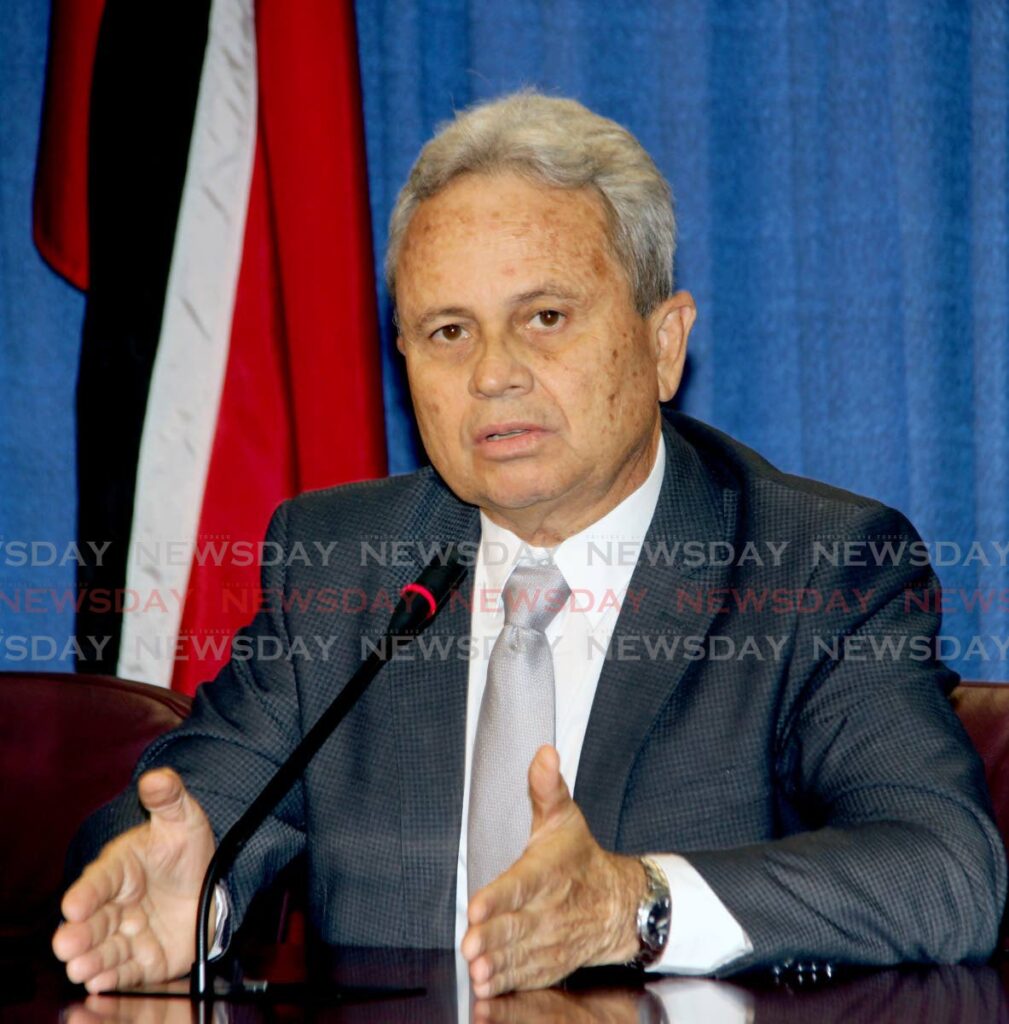IMF projects economic growth, fall in inflation for Trinidad and Tobago

FINANCE Minister Colm Imbert has welcomed the concluding statement of the International Monetary Fund's(IMF) 2023 Articlve IV mission to TT, which projects positive economic growth of 3.2 per cent for the country this year.
In a statement issued by the ministry, Imbert said , "The IMF’s guidance and encouragement are very useful and timely."
He added that the information provided by the IMF gives Government confidence as it moves to "accelerate our diversification efforts, and build on the foundation we have laid of sound fiscal and financial policies.”
The IMF issued the statement on its website on Thursday.
Article IV consultations are held regularly between the IMF and its member states to monitor the economic development of the latter.
An IMF team was in TT between March 1-14 for the Article IV consultations.
The IMF said real Gross Domestic Product (GDP) is estimated to have expanded by 2.5 per cent in 2022, supported by the non-energy sector which was partially offset by an unexpected weak performance of the energy sector.
Inflation increased, reaching 8.7 per cent by end of 2022.
This was driven by imported energy and food prices, partial liberalisation of domestic fuel prices in 2022, and local flooding.
The IMF said TT's economic recovery this year is "is expected to gain broad-based momentum in 2023 with a 3.2 per cent GDP expansion."
Over the medium term, the IMF continued, new energy projects will come into production but as oil and gas fields mature, potential growth will slow down to 1.5 per cent.
Inflation is projected to slow down to 4.5 per cent by end of 2023 and will continue declining with international prices.
The IMF said waning gas and petrochemicals exports starting in 2024 and an anticipated decline in global energy prices around the same time "will result in a narrower current account surplus, averaging 6.7 per cent of GDP."
International reserve coverage is projected to remain adequate at around 6.5 months of prospective total imports by 2028.
The IMF saw TT's fiscal position swinging from a surplus in the 2022 financial year to a deficit in financial year 2023 and then stabilise at moderate deficits over the medium term.
"The fiscal balance is projected to deliver a deficit of 2.8 per cent of GDP in financial year 2023. This reflects lower energy revenues due to declining prices and domestic production, and increased capital spending."
The IMF saw a persistence of the deficit over the medium term, with the possibility of it widening based on the outcome of ongoing public-sector wage negotiations.
"Public debt is projected to reach 74.2 per cent of GDP in financial year 2028, slightly below the government’s new soft debt target of 75 per cent of GDP."
The IMF saw possible downside risks to the economy from factors such as potential disruptions to domestic oil and gas production and global financial instabilities.
But the IMF saw the potential for TT to benefit from higher-than-expected energy production and prices, "including from a new US license to TT to develop a major gas (Dragon) field in Venezuela."
Against the background of a positive economic outlook for TT but looming uncertainties, the IMF welcomed the Government's prudent management of recent energy windfalls, the expenditure envelope in the 2022/2023 budget, efforts to balance the budget over the medium term and maintenance of a consistent monetary and exchange rate policy.


Comments
"IMF projects economic growth, fall in inflation for Trinidad and Tobago"